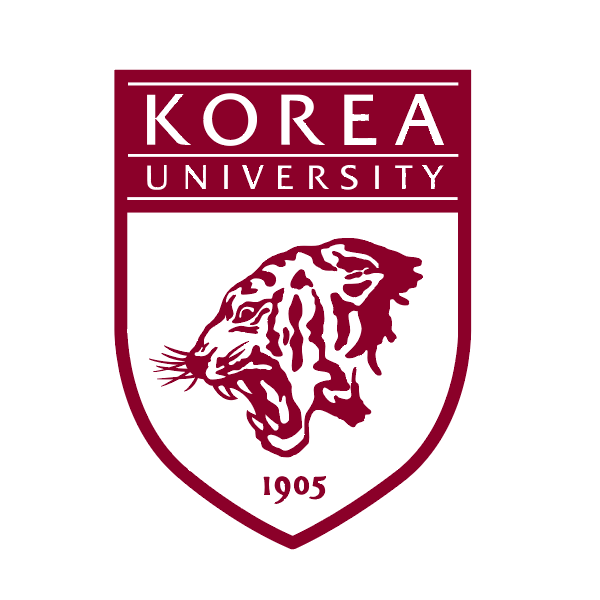
Overview of Quantum Technology Research
In recent years, the fields of quantum computing, quantum communication, and quantum sensing have experienced rapid development, leading to the emergence of a commercially significant quantum industry. It is evident that quantum information science and technology (QIST) will drive the next generation of scientific and technological innovation worldwide.
Nevertheless, there is a shortage of research personnel in the fields of QIST globally, and this shortage is even more severe in Korea. To address this issue, the “Center for Quantum Sapient Workforce” was launched in April 2022 with support from the Ministry of Science and ICT of Korea. Korea University is the lead institution, and the center has eight other universities, four government-funded research institutes, and seven industrial companies as member institutions. The Center’s objective is to create an environment and foundation for cultivating advanced talent, preparing for the future development of new industries, and securing national competitiveness.
The Center brings together the capabilities of participating universities, research institutes, and industrial companies to provide an environment in which individuals with diverse backgrounds can successfully enter the field of QIST, build professional careers, and contribute to the development of domestic QIST research and industry. Through this initiative, the Center aims to foster national competitiveness and lead the future development of the quantum industry.
Professors and Laboratories

Department of Physics / professor Mahnsoo Choi
Research on quantum measurement theory of quantum entanglement phenomena and decoherence occurring in superconducting qubits and quantum dot spin qubits.
최만수 교수님 < Quantum Control Laboratory >
Homepage ≫ http://qclab.korea.ac.kr
Overall research theme :
We are interested in various features of quantum systems and studying how to manipulate them. Recently, we are focusing on several topics, including the study of local unitary invariants and entanglement structures of stabilizer states, the development of algorithms for universal quantum circuit compilation using quantum annealing processors, the investigation of self-purification and entanglement revival in lambda matter, quantum communication without a shared reference frame and decoherence-free subspaces.
 Department of Physics / professor Hongkyu Park
Department of Physics / professor Hongkyu Park
Research on nanostructures that interact strongly with light, such as optical resonators smaller than the wavelength of light, semiconductor nanowires, photonic crystal structures, and surface plasmon structures.
박홍규 교수님 < CENTER FOR SUBLENGTH NANOWIRE PHOTONIC DEVICES >
Homepage ≫ https://park.korea.ac.kr
Overall research theme : We study the strong light-matter interaction in various nanomaterials and demonstrate novel nanoscale devices operated by light.
 Department of Physics / Professor Tai Hyun Yoon
Department of Physics / Professor Tai Hyun Yoon
Quantum optics, atomic physics, optical lattice (optical tweezers) atomic clock, single photon optical frequency comb, basic principle experiment of quantum mechanics.
윤태현 교수님 < Center for Single Atom-Photon Quantum Measurement > >
Homepage ≫ https://cymaq.korea.ac.kr(홈페이지 구축중)
Overall research theme : Single atoms trapped in individual and programmable optical tweezer arrays, in particular Yb atoms trapped at magic wavelength, can be used to study highly precision quantum measurement protocols for optical tweezer clocks as well as for quantum computation. We are also interested to use entangle signal-idler photon pairs to demonstrate quantitatively the Bohr’s complementarity relation of wave-particle duality. With such controllability and programmability of single atoms and photons, we are trying to demonstrate 10 x 10 Yb array Yb tweezer array quantum platform, fault tolerant universal quantum computer based on continuous variable two-squeezed state in time multiplexed two-dimensional cluster state, and photonic GKP state generation with squeezed optical frequency comb states.
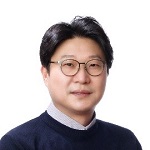 Department of Physics / professor Donghun Lee
Department of Physics / professor Donghun Lee
Quantum sensing and imaging based on solid-state spin qubits, i.e. diamond NV centers. Developing quantum-enhanced sensing methodologies from single qubits level to ensemble qubits level. Utilizing qubits as new experimental tools in condensed matter systems and studying quantum imaging from nanometer to millimeter scales. As a long-term goal, also studying hybrid quantum systems and interfaces.
이동헌 교수님 < Quantum Sensing & Imaging Lab >
Homepage ≫ https://www.qdl.korea.ac.kr
Overall research theme : Quantum Information and Quantum Sensing
After the era of NISQ (Noise Intermediate-Scale Quantum) technology, quantum systems may be used in daily life applications and can provide new concepts of devices that are not possible from their classical counterparts. Our research focuses on quantum information and sensing based on solid-state spin qubits e.g. nitrogen-vacancy (NV) defect centers in diamond. The research uses experimental techniques developed in the field of quantum optics and condensed matter physics.
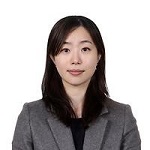 Department of Physics / professor Eunmi Chae
Department of Physics / professor Eunmi Chae
Quantum manipulation of ultracold molecules in optical tweezers for quantum simulation/computation, Quantum control of molecular collisions/reactions, Precision spectroscopy of molecules, Development of a new laser cooling method for exotic molecules/atoms.
채은미 교수님
Homepage ≫
Overall research theme : Quantum technology using ultracold molecules
Our research aims to generate and manipulate ultracold molecules for various quantum technology. Molecules with large electric dipole moments and abundant internal structures are attractive candidates for next-generation quantum computing platforms.
We are also interested in studying the quantum nature of chemical reactions by precisely controlling the molecules’ quantum states and quantum statistics.
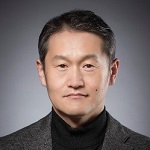 Department of Electrical and Electronic Engineering / professor Jun Heo
Department of Electrical and Electronic Engineering / professor Jun Heo
Quantum communication using nonlinear optics, QKD research. Development of nonlinear entanglement quantum error correction code, development of terrestrial/satellite quantum communication technology.
허 준 교수님 < Communication & Information Systems Laboratory >
Homepage ≫ https://cislab.korea.ac.kr
Overall research theme : Quantum Key Distribution, Quantum Error Correction and Quantum algorithms
Our research is a field of study on the Quantum Key Distribution, especially DV-QKD using single photon and CV-QKD using multi photon. In addition, we focus on logical qubit placement study considering 3- dimensional neighbor connectivity and optimizing the resources required for quantum computing architectures using Quantum Error Correction Codes. In quantum algorithms part, our lab research classical- quantum hybrid algorithms, such as QAOA(Quantum Approximate Optimization Algorithm).
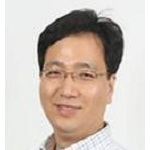 Department of Information Security/ professor Seokhee Hong
Department of Information Security/ professor Seokhee Hong
Secret key cryptography analysis and design, implementation of public key cryptography, quantum resistant cryptography, side channel analysis, quantum algorithm.
홍석희 교수님 < Cryptographic Algorithm Laboratory >
Homepage ≫ http://crypto.korea.ac.kr
Overall research theme : Symmetric key field research in the Cryptographic Algorithm Lab is the design and analysis of symmetric key cryptographic algorithms such as block ciphers, operating modes, stream ciphers, hash functions, and MACs. In addition, research on the basic theories of cryptography, such as pseudorandom numbers, is also being conducted. We carry out two or more projects every year to maintain exchanges with companies or research institutes. The field of design and implementation of cryptographic algorithms aims to design and implement efficient public key algorithms by alleviating the disadvantages of operation speed and storage space, which are characteristics of public key algorithms, and are currently developing and commercializing the Klib library. Side-channel analysis is a field that analyzes cryptography using various side-channel information that can be obtained from the execution of public key/symmetric key algorithms, and is leading research with the best experimental environment in Korea.

